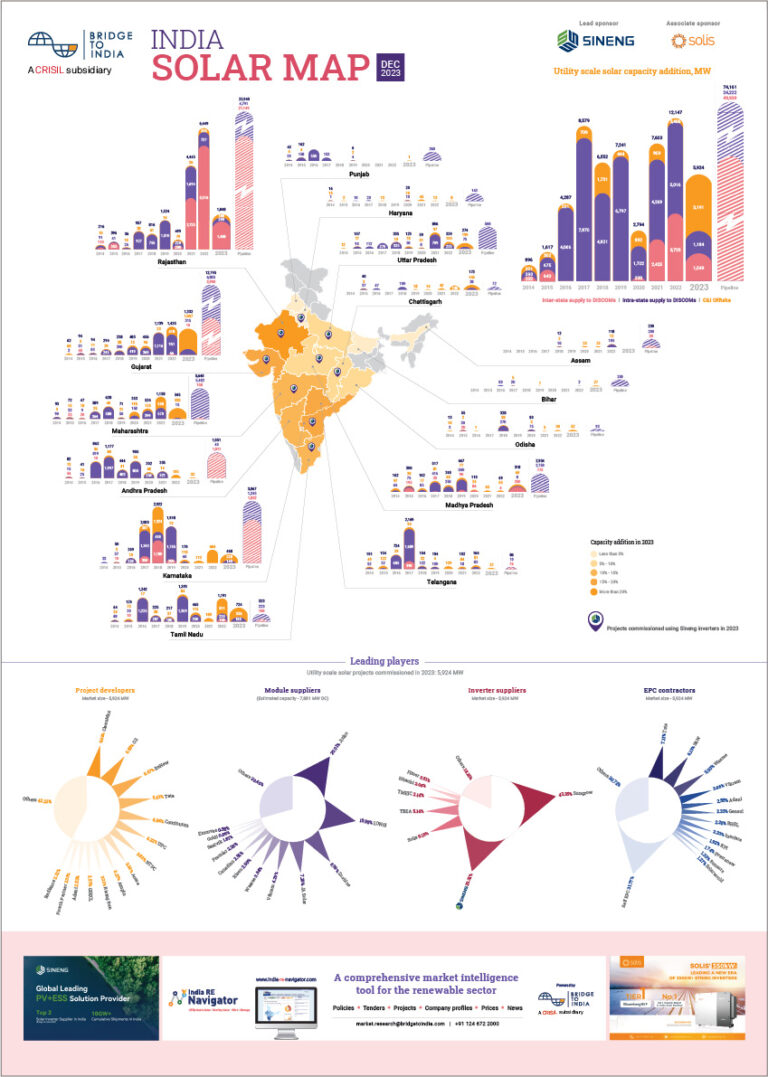This report provides a detailed update of all key sector developments and trends in the quarter – capacity addition, leading players, tender and policy announcements, equipment prices, financial deals and other market developments. It also provides market outlook for the next two quarters.
India added 2,110 MW solar power capacity in Q2 2021, taking total installed capacity to 46,130 MW by 30 June 2021. Utility solar installations increased marginally over the previous quarter despite COVID-19 lockdowns across the country. We estimate pace of project construction to remain robust with about 4580 MW capacity to be added in the next six months. Tender issuance in Q2 was down 25% QOQ. 17 utility scale project tenders aggregating 8,062 MW and six rooftop tenders aggregating 94 MW were issued in the quarter. There were only three project development auctions totalling 625 MW with tariffs ranging between INR 2.51 to 2.68/ kWh.
Figure: Total installed and pipeline capacity, MW, 30 June 2021

Source: BRIDGE TO INDIA research, MNRE
Note: ‘Others’ include projects executed under open access, REC and other miscellaneous categories. All project capacity numbers in this report are stated in AC MW, unless noted explicitly otherwise.
The quarter saw rising module prices and risk of delayed shipments. Many module suppliers are believed to be renegotiating module prices and/ or delaying shipments because of supply chain constraints. Reluctance of DISCOMs to sign PPAs is another major concern with as much as 21,696 MW of auctioned projects yet to be tied-up. On the policy front, the quarter saw ISTS waiver extension by two years to 2025. The waiver now also applies to GTAM, pumped hydro and battery storage projects.
You can purchase the report online or write to us at market.research@bridgetoindia.com.












